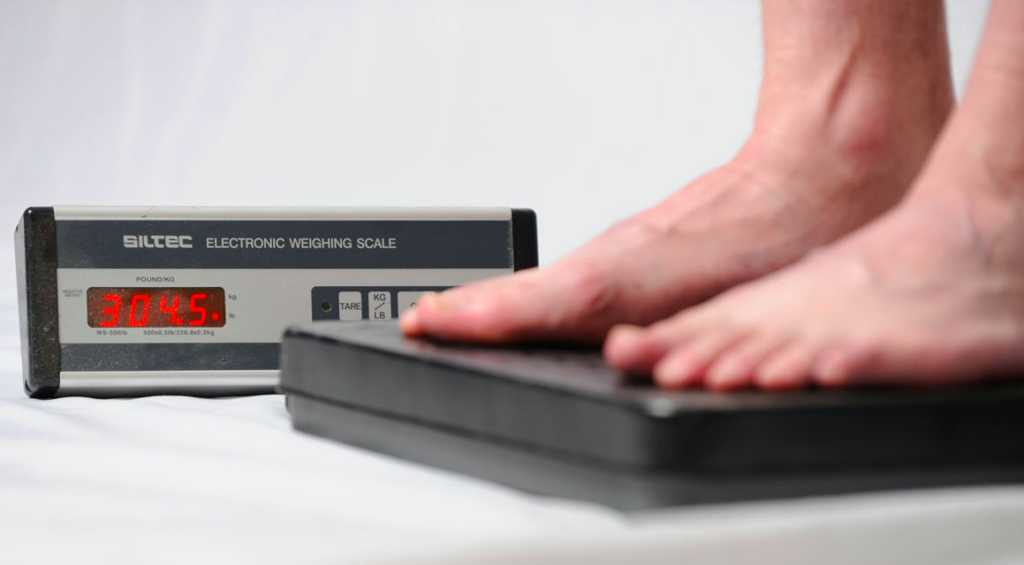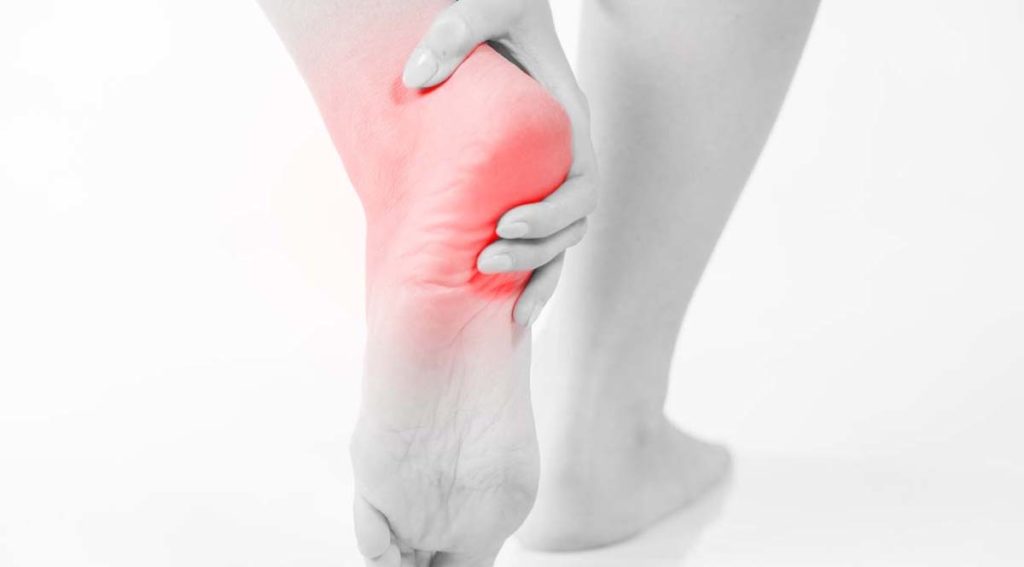Body weight and plantar heel pain

Plantar heel pain is common in people who are considered overweight or obese. It is thought that an elevated bodyweight might increase tension on the heel leading to increased sensitivity of the plantar fascia and surrounding tissues. It has also been proposed that obesity might also weaken the plantar fascia due to high levels of cholesterol in the blood stream. However, it is unclear how much each of these issues contribute to heel pain. Also, there is little evidence that reducing weight will help reduce the risk of plantar heel pain.
Exercise to reduce weight may make your heel pain feel worse, if this is the case, try to modify the types of exercise that you do (learn more about modifying your activity levels). For example, you might like to try swimming, cycling, rowing or resistance training, rather than walking or running.
Exercise is crucial for overall health and well-being. Finding different forms of exercise that you enjoy, that don’t irritate the heel, is important for maintaining strength and condition. Exercise is also wonderful for mental health, which in turn will help reduce pain. Motion is lotion!
Overall, obesity is a major risk factor for plantar heel pain. It is unclear if reducing weight will reduce the likelihood of having plantar heel pain but attempting to address this issue might have positive consequences for your heel pain but also your physical and mental health. The Better health Channel and the Victoria State Government have a useful resource on obesity and managing body weight.
Links to research
van Leeuwen KDB, Rogers J, Winzenberg T, et al. Higher body mass index is associated with plantar fasciopathy/‘plantar fasciitis’: systematic review and meta-analysis of various clinical and imaging risk factors. British Journal of Sports Medicine 2016;50:972-981. https://www.ncbi.nlm.nih.gov/pubmed/26644427
